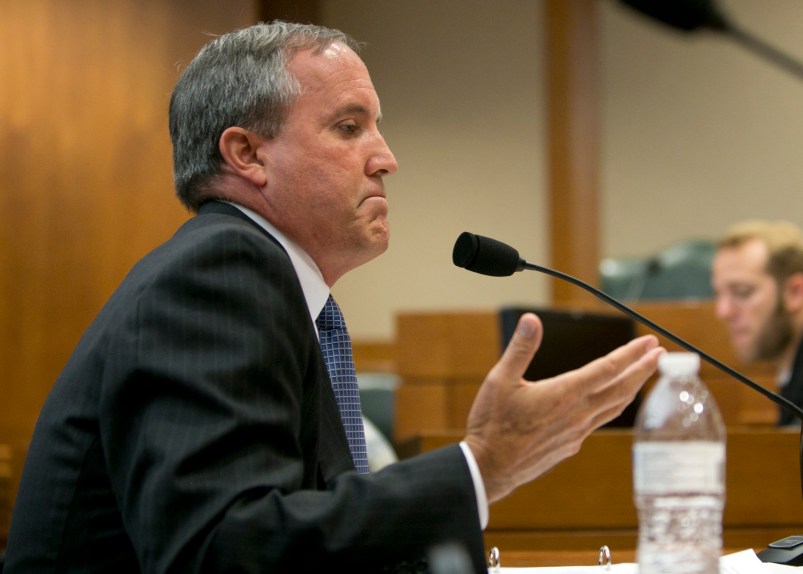This article is part of TPM Cafe, TPM’s home for opinion and news analysis.
With the impeachment of Donald J. Trump, Sen. Susan Collins of Maine is again in the national spotlight, as she looks like she just might vote to hear witnesses at the Senate trial. That impending Collins vote became especially crucial this morning, when new allegations against Trump’s involvement in the Ukraine pressure scheme surfaced in the unpublished manuscript of ex-National Security Adviser John Bolton’s new book. Collins indicated on Twitter the news may sway her vote, arguing the accusations “strengthen the case for witnesses and have prompted a number of conversation among my colleagues.” If Collins votes to allow additional documents and witnesses, she’d be one of the few Republicans to do so. If it happens, it’s likely she’ll be lauded for her independence, and headlines in Maine will likely make this their focus.
National and local reporters typically frame Collins’ sometimes departure from the Republican fold in terms of a tension between two constituencies. The basic narrative: Collins has to keep Republicans happy, lest she face a primary challenge, but she also has to appeal to the broader electorate. A more historically grounded variant points to the decline of Republicanism in New England, at least when it comes to Congress and presidential votes. This is a shift that has gotten far less attention than party shifts in the South. The upshot is that Trump won just one electoral vote in New England, in Maine’s second congressional district, and Collins is now the only Republican office-holder from New England in Congress.
But what both of those perspectives on Collins leave out is something central to Maine political culture, a model against which Collins often is judged. There’s a vision of leadership Mainers have long touted and from which Collins previously benefited politically. In that vision, the best political leaders are respected nationally, civil, not politically extreme, involved in working across the aisle, committed to principle and independent.
There’s a political pantheon of Maine, made up of elected officials who fit that model. Margaret Chase Smith is among the purest exemplars. Smith was the Republican senator who stood up to Joe McCarthy in inveighing against “character assassinations,” while defending “the right of independent thought,” and proclaiming that she didn’t “want to see the Republican Party ride to political victory on the Four Horsemen of Calumny — Fear, Ignorance, Bigotry and Smear.” Smith is regularly cited in Maine and Collins has identified Smith as a role model.
Others in the pantheon include Republicans Bill Cohen and Olympia Snowe, as well as Democrats Ed Muskie and George Mitchell and independent Angus King.
Collins has sometimes been included in the pantheon. Her vote against the repeal of the Affordable Care Act gave her place there great credibility, as did her announcement in the summer of 2016 that she would not back Trump for the presidency.
Over time, two key pillars of Collins’ reputation for independence were her support for legal and safe abortion and her environmentalism. And in the past, Collins was able to tout endorsements from pro-choice and environmental groups. But now, after voting for anti-choice judges, most importantly Justice Kavanaugh, and earning just 21% in the League of Conservation Voters 2018 scorecard, those endorsements have gone to a top challenger, Democrat Sara Gideon.
Her comments and actions on impeachment pose another threat to Collins’ reputation as an independent. Here, Collins’ most pertinent Maine comparison is to Republican Bill Cohen, who served on the House Judiciary Committee during the Watergate investigation and on the Select Committee that probed the Iran-Contra affair. In both cases, Cohen stood up to presidents of his own party.
Like Margaret Chase Smith, Bill Cohen’s political courage and independence is still remembered in Maine.
Comparisons between Cohen and Collins were sure to be inevitable. Both have been viewed as independent and both are Republicans who have been confronted with presidential abuses. Collins was an intern for Cohen during the summer of 1974 when Cohen helped craft and pass articles of impeachment. Facing considerable political pressure from Nixon backers, Cohen made the articles more specific and thus stronger. Cohen characterized his position as “on a high wire that was strung between disloyalty to party and disloyalty to principle” and cited the exemplar of Maine independence Margaret Chase Smith.
But Cohen’s impact is not just as an historical example.
Cohen comes to the state frequently and hasn’t held his tongue on Trump’s wrongdoing. This fall Cohen said he believed Trump pursued a quid pro quo with Ukraine and this warranted impeachment, and warned “there will be no rules that will be unbroken” if Trump wins a second term. Just last week he said that Trump’s actions in Ukraine were done for a “corrupt purpose.” Cohen also said that further evidence about Trump “is going to come out” and when it does senators “will be called upon by their constituency: ‘Well, why didn’t you at least go forward and ask for more evidence so that you could be informed, so that we could be informed?’”
And it is in this broader context — a backdrop of a Maine political vision of independence — that Collins is often judged.
Collins’ waffling on witnesses is nothing new as a style and practice, as she often takes considerable time to announce her decisions. Reporters and pundits have often explained her purported indecision as her grappling with political pressures from multiple sides, and her defenders contend it shows her seriousness in assessing arguments.
But what might be seen as concern for a careful decision currently appears to many as some mix of tortured indecision, studied ignorance and political cravenness.
Under greater scrutiny now, Collins hasn’t seemed as politically deft as in the past and certainly is not secure politically. When she won 69% of the vote in 2014, she had the support of 39% of Democrats and 69% of Independents, including 41% of Democratic women and 67% of Independent women. That is highly unlikely to happen in 2020. Collins’ Kavanaugh vote hurt her and her approval numbers have dropped considerably. The most recent Morning Consult poll found her underwater in approvals. Even as Collins would want to continue to hold a place in the Maine pantheon, the state itself has changed and that includes the Republican party. The current Vice-Chair of the Maine Republican Party promotes alt-right ideas, claiming that immigrants are the vector of disease and crime. Its successful gubernatorial candidate in 2010 and 2014 was Paul LePage, who declared himself “Trump before Trump.” Yet, while an independent candidate strongly supportive of Trump has emerged, LePage backs Collins and purportedly pressured a primary challenger to drop out of the race.
Intensive organizing and stakeholder pressure pushed Collins to vote against repealing Obamacare but mobilizing to try to get Collins to oppose Kavanaugh did not work. After working hard to flip the second congressional district from red to blue in 2018 and achieve a Democratic trifecta in the state with the governorship and both houses of the Maine Legislature, activists are already working on defeating Collins. They have asked her to hold town meetings but Collins has not done so for decades and there is no prospect she will do so. Instead Collins appears before invited audiences and gives media interviews.
Collins’s overall campaign strategy has been to run ads saying she’s independent, to criticize Democrat Sara Gideon and to try to use incumbency advantages. Collins engages in credit-claiming, touting grants and other help to Maine. Her offices carry out effective constituency service. It’s a strategy that’s worked for Collins in the past and it may work again. Beating a senatorial incumbent who has been as popular as Collins is tough. It’s possible but will be no slam-dunk.
One new aspect of the Maine Senate race that might matter is the use of ranked-choice voting. Under this system, it’s not enough to gain a plurality — the most — votes. If no candidate wins an outright majority, the instant runoff process kicks in until one candidate has a majority. Collins may face a ballot with a Democrat, a Green party candidate, at least one independent to her left and an independent who strongly backs Trump. Those may bring Collins’ initial vote to under 50% and, if this happens, it’s quite possible that supporters of candidates to Collins’ left will rank the Democratic candidate after theirs and supporters of the strongly pro-Trump candidate won’t rank anyone else. That pattern of ranking seems likely, given that Maine Democrats and independents like the ranked choice system much more than Republicans and ranked candidates more.
What does all this mean for what Collins will do on impeachment? One incentive she faces is that of appearing independent, given Maine’s political culture and its political pantheon.
However, casting a vote for witnesses after voting not to won’t necessarily help Collins, for this sort of sequence is now often seen as too clever by many Mainers. In 2016 Collins said she wouldn’t back Trump when it looked like he wouldn’t win. She may vote for impeachment witnesses when she’s not the deciding vote for passage. And, now under greater scrutiny, Collins could get the headlines saying she’s independent while facing an electorate that includes Trump backers who won’t like it and Democrats and independents who backed her before but are skeptical about whether that label is really deserved.
Amy Fried is the chair of University of Maine’s political science department and she oversees the school’s Maine Policy Scholar Program.









